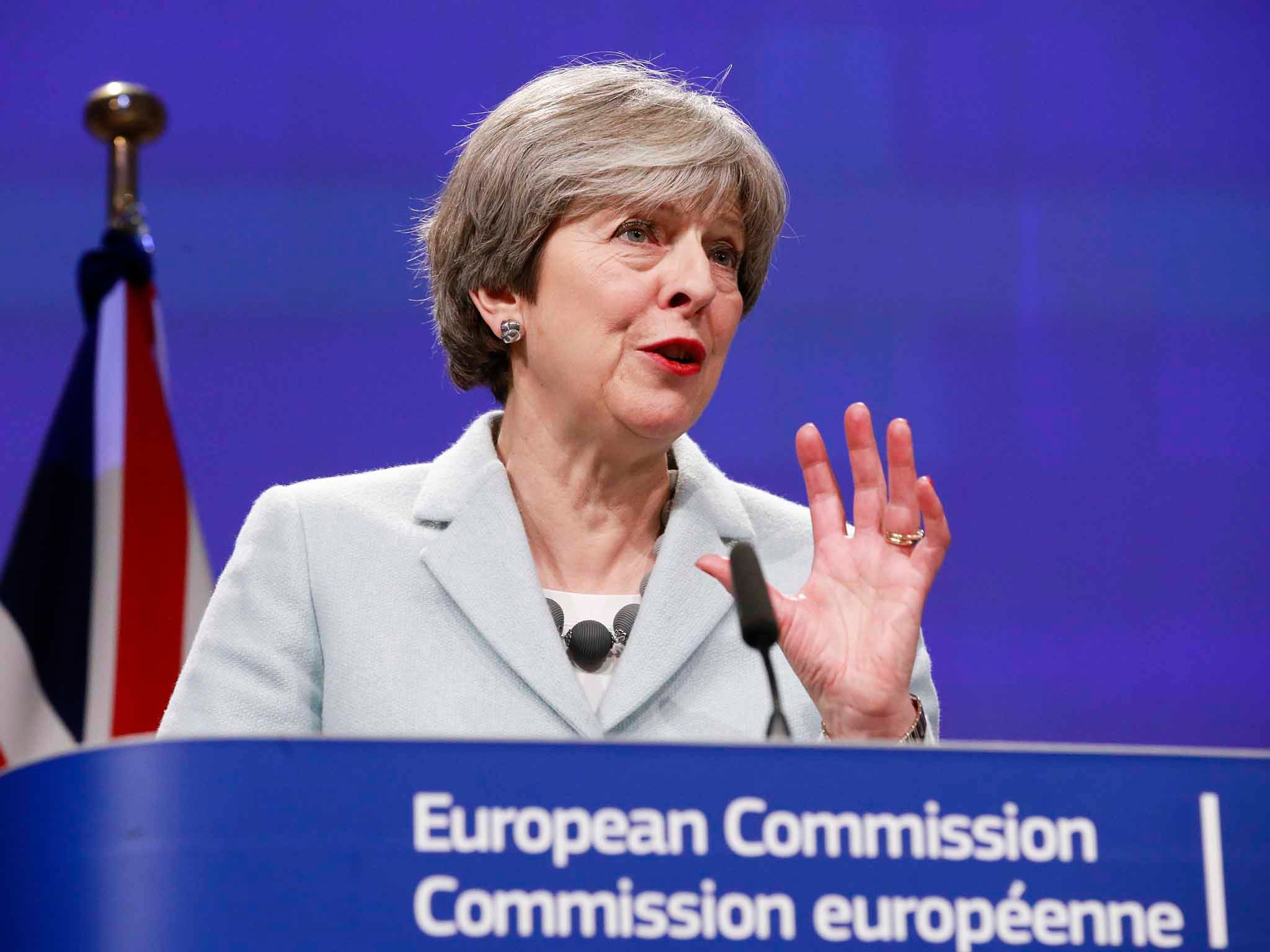Brexit trade talks could still be months away despite breakthrough
Transition period likely to be discussed first to give UK time to clarify

Your support helps us to tell the story
From reproductive rights to climate change to Big Tech, The Independent is on the ground when the story is developing. Whether it's investigating the financials of Elon Musk's pro-Trump PAC or producing our latest documentary, 'The A Word', which shines a light on the American women fighting for reproductive rights, we know how important it is to parse out the facts from the messaging.
At such a critical moment in US history, we need reporters on the ground. Your donation allows us to keep sending journalists to speak to both sides of the story.
The Independent is trusted by Americans across the entire political spectrum. And unlike many other quality news outlets, we choose not to lock Americans out of our reporting and analysis with paywalls. We believe quality journalism should be available to everyone, paid for by those who can afford it.
Your support makes all the difference.Brexit trade talks could still be months away despite Theresa May’s breakthrough deal, amid concern in Brussels that the British Government doesn’t know what it wants to get out of the separation.
The Independent understands that officials close to the negotiating team believe the UK and EU should first discuss the more straightforward issue of the transition period, to give the UK Government time to think about its post-Brexit trade plans.
Doubt in the upper levels of the European Commission comes as negotiators highlighted deep differences that need to be bridged, with the starting date for trade discussions likely to slide into February or March until the UK gives more clarity.
It is understood that EU officials were spooked after Chancellor Philip Hammond told MPs earlier this week that the Cabinet had not yet discussed the end goal of Brexit, while Brexit Secretary David Davis revealed to another committee that the 58 studies into Brexit’s impact, which he previously claimed existed, did not in fact exist.
Though the Commission has recommended that the European Council grant “sufficient progress” to move to the next phase of talks, it is likely that early discussions in the first part of next year will focus only on the transition period.
As if to highlight the problems, a European Commission communiqué to the European Council, released on Friday, cast doubt on the consistency of Theresa May’s strategy to take the UK out of the single market and customs union after signing a deal to avoid a hard border in Northern Ireland.
The document, intended for internal viewing, says the EU negotiators believe it will be difficult for the PM follow through on her commitment to “maintain full alignment with those rules of the internal market and customs union” across the UK while taking Britain out of the single market and customs union – something the PM says she wants to do.
“Whilst the United Kingdom remains committed to protecting and supporting continued North-South cooperation across the full range of contexts and frameworks, including after withdrawal, the common understanding provides that the United Kingdom aims to achieve this protection and the avoidance of a hard border through the overall EU-United Kingdom relationship,” the 2,600-word communication says.
“This intention seems hard to reconcile with the United Kingdom’s communicated decision to leave the internal market and the customs union.”
Despite the Commission’s suggestion that the UK’s strategy was impractical, a bullish Downing Street spokesperson told reporters in Westminster: “We are leaving the single market and customs union. I’ll write it on a sign.”

The Government has offered no detailed explanation of how it could simultaneously leave the single market and customs union and also sign up to UK-wide rules to prevent a hard border in Northern Ireland, however.
Despite the Commission’s wish to focus on the transition period, the issue could still present stumbling blocks. One key row is likely to be on whether the UK will automatically adopt new EU laws without a say in drawing them up after 2019.
The Independent reported in November that EU chief negotiator Michel Barnier wants any transition to involve the “automatic application in the UK of new EU rules post-30 March 2019” – something key Brexiteers in the Cabinet, including the Foreign Secretary Boris Johnson, have explicitly set as red lines.
The PM’s deal on Northern Ireland is the final piece in the jigsaw required for her to progress to the next round of Brexit talks, for which she is expected to get the green light at a Brussels summit next week.
Join our commenting forum
Join thought-provoking conversations, follow other Independent readers and see their replies
Comments